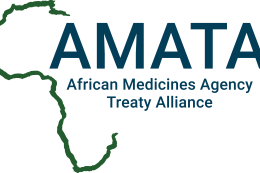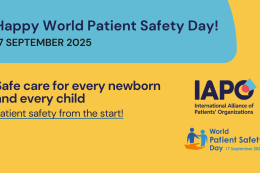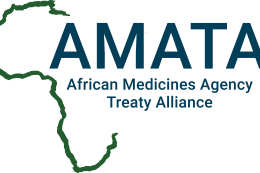Corruption can be the difference between life and death

This joint article by Sophie Peresson, Director of the Pharmaceuticals & Healthcare Programme, Transparency International, and Kawaldip Sehmi, CEO of IAPO, explores the main issues around ethical and accountable healthcare systems.
If the full fruits of investment in universal health coverage are to be enjoyed by all, then local and international corruption, bribery, embezzlement, undue influence on decisions and money laundering in public health and healthcare facilities, goods, services, medicines and programmes must be prevented.
Global goals and targets
While significant progress had been made in attempting to achieve the Millennium Development Goals by 2015, many areas were left untouched where insignificant progress had been made in hitting the targets. One of the reasons for this was a lack of transparency and accountability within development and governance.
Under the Sustainable Development Goals (SDGs), specifically Goal 16, targets and goals have been set to realize strong institutions, particularly in health sectors, in order to:
- Significantly reduce all forms of violence and related death rates everywhere (16.1)
- Promote the rule of law at the national and international levels and ensure equal access to justice for all (16.3)
- Substantially reduce corruption and bribery in all their forms (16.5)
- Develop effective, accountable and transparent institutions at all levels (16.6)
- Ensure responsive, inclusive, participatory and representative decision-making at all levels (16.7)
- Broaden and strengthen the participation of developing countries in the institutions of global governance (16.8)
For the health sector, this will mean integrating good governance into policy making and implementation to reduce the risk of corruption.
Tackling corruption (the abuse of entrusted power for private gain)
Corruption in the health sector can mean the difference between life and death. Poor people are worst affected. Medical staff can charge unofficial fees to attend to patients. They may demand bribes for medication which should be free. Or they may let patients who bribe them queue-jump. Corruption also costs lives when fake or adulterated medications are sold to health services.
Without proper checks from regulators, public health funds can easily disappear. Corruption has a corrosive impact on health. It negatively impacts public health budgets, the price of health services and medicines, and the quality of care dispensed. Preventing abuse and reducing corruption therefore is important in order to increase resources available for health, to make more efficient use of existing resources and, ultimately, to improve the general health status of the population.
World Bank surveys show that in some countries, up to 80% of non-salary health funds never reach local facilities. Ministers and hospital administrators can siphon millions of dollars from health budgets or they can accept bribes. This distorts policy and denies people hospitals, medicines and qualified staff. Stolen funds also hamper efforts to beat major health challenges, such as malaria and HIV/AIDS.
Corruption is not a problem that exists only in developing countries. Wealthy countries lose millions of dollars each year to insurance fraud and corruption. Corruption is therefore a global challenge.
Corruption in the health sector can mean the difference between life and death. Poor people are worst affected. Medical staff can charge unofficial fees to attend to patients. They may demand bribes for medication which should be free. Or they may let patients who bribe them queue-jump. Corruption also costs lives when fake or adulterated medications are sold to health services.
Transparency
Transparency and better public information on cost and quality are essential to help providers improve by benchmarking their performance against others and to help patients make informed choices about their care. Transparency is also important to level the playing field. The widespread practice of charging patients different prices for the same care is inherently inequitable, e.g. when the uninsured are charged more than other patients.
In healthcare, transparency involves the public availability of information such as health budgets, performance indicators and the prices of medicines. Accountability requires individuals and institutions to answer to those who will be affected by decisions or actions taken by them such as internally to specific agencies or publicly to communities. Often these are policies that can be found globally, although these are few and far between, or are otherwise exceptional national policies.
Accountability
Strong and independent citizens’ groups play an instrumental role in ensuring that government, healthcare institutions, and health programmes are held accountable to the communities they are designed to serve. Accountability entails the procedures and processes by which one party justifies and takes responsibility for its activities.
The essence of accountability is answerability - being accountable means having the obligation to answer questions regarding decisions and/or actions. Two types of questions can be asked: information provision and justification, and what was done/spent and why? Sanctions constitute the other defining feature of accountability.
Defining accountability also relates to specifying accountability for three general categories: financial, performance, and political/democratic accountability.
- Financial accountability concerns tracking and reporting on allocation, disbursement, and utilization of financial resources, using the tools of auditing, budgeting, and accounting.
- Performance accountability refers to demonstrating and accounting for performance in light of agreed-upon performance targets. Its focus is on services, outputs, and results.
- Political/democratic accountability has to do with the institutions, procedures, and mechanisms that ensure that government delivers on electoral promises, fulfills the public trust, aggregates and represents citizens’ interests, and responds to societal needs and concerns. The political process and elections are the main avenues for this type of accountability, but it also involves policy-making. A central concern here is equity, where an important government responsibility is to remedy healthcare market failures both through regulation and resource allocation.
Patients and communities (people) as guardians of health systems
Patients can play a big role in holding others to account, and should advocate for patient-centred healthcare systems: participatory, inclusive, transparent and accountable to the patients and their communities.
Not only is a patient-centred healthcare system designed and delivered to address the healthcare needs and preferences of patients so that healthcare is appropriate and cost-effective, it is also designed to promote a greater patient oversight by promoting greater patient responsibility and optimal usage. Patient-centred healthcare leads to improved health outcomes, quality of life, equity, equality, efficiency and effectiveness. It is creates optimal value for healthcare investment under SDG 2030.
Patients’, families’ and carers’ priorities are different in every country and in every disease area, but from this diversity some common priorities emerge. Patient-centred healthcare is based on the following five principles:
- Respect
- Choice and empowerment
- Patient involvement in health policy
- Access and support in a life-course approach
- Timely, relevant and accurate information and advice



